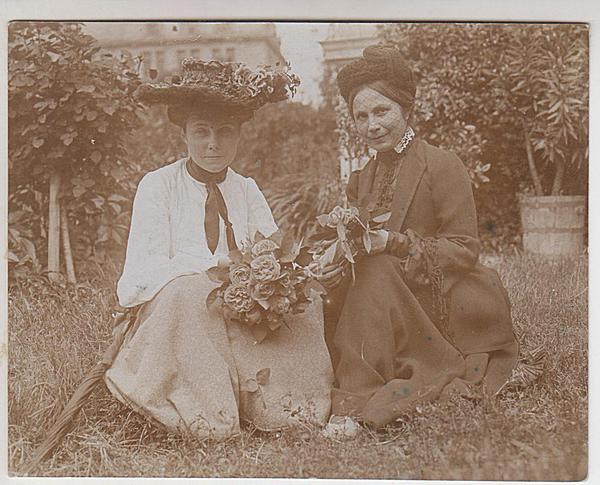
PROGRAMME
26th May 2021, h. 10-12 Bulgarian time
- 10.00 Welcome greetings, prof. Milena Milanova, Sabina Aneva
- 10.15 Presentation of Citizen Heritage project, prof. Fred Truyen (PDF)
- 10.30 Scope of the workshop, Antonella Fresa (PDF)
- 10.40 Participants’ survey, prof. Trilce Navarrete
- 10.45 CrowdHeritage: a crowdsourcing platform for enriching cultural metadata, Spyros Bekiaris (PDF)
- 11.00 Methodology of participatory annotation, Sofie Taes (PDF)
- 11.15 Hands-on experience >> GO TO THE TOOL
- 12.00 Conclusions
27th May 2021, h. 10-12 Bulgarian time
- h. 10.00 – 12.00 After a recap by Sofie Taes (PDF); the annotation work continues (session in Bulgarian language)
Enriching photographic heritage through citizen science
If it is true that an image is worth a thousand words, the key issue with the mass of digitized photographic heritage that is published in online repositories is allowing users to find the images they’re looking for.
Good metadata, with rich keywords and links to authority files and official thesauri are necessary for search, retrieval and reuse of digital collections of cultural heritage relevance. A growing attention is therefore given to enriching existing digital resources which may have basic metadata, to make them more discoverable, multilingual, and meaningful.
This metadata improving activity can be done in various ways, also with support of Artificial Intelligence – but with photographic heritage the human factor is of the utmost importance to unveil the knowledge that historical images embed. Involving citizens in the loop is the best strategy for letting photography speak for themselves.
In this event, students of digital humanities from the University of Sofia successufully worked on metadata improvement, by annotating and enriching the beautiful digitized collection of early Bulgarian photography published by NALIS Foundation in Europeana.
The result is over 5.000 new tags added to nearly 700 heritage photographs.
Organized in collaboration with

Sofia University “St. Kliment Ohridski”, Faculty of Philosophy
The Sofia University “St. Kliment Ohridski” is the first higher educational institution in Bulgaria. Its history is an embodiment and a continuation of centuries of cultural and educational tradition in this country. Public teaching activities in Bulgaria date back to the second half of the 9th century. During the Bulgarian Renaissance, a new idea for opening a School of Higher Education was conceived. The prestige of the School of Higher Education grew rapidly with the cultural and educational mission it acquired after the Liberation in 1878.
Year by year the Sofia University has developed into an important academic and scientific centre on the Balkans, a well developed academic institution with European dimensions. Today Sofia University St. Kliment Ohridski is the largest and most prestigious educational and scientific centre in the country.
When the Sofia University “St Kliment Ohridski” was founded in Bulgaria in 1888, Philosophy was among its first fields of study.
During the years Philosophy was part of different University Faculties until 1972 when become a separate Faculty of Philosophy gradually growing by offering curricula in socially important research areas such as Philosophy, Political science (1986), Cultural studies (1992), Library and Information science (1993), Public administration (1997), European studies (1999), Public information systems (2018). Nowadays the Faculty of Philosophy covers a wide range of classical and modern fields of social science and the humanities, also with attention to the digital humanities taught by the Department of Library Science, Scientific Information and Cultural Policy.
Website: https://www.uni-sofia.bg/index.php/eng
Faculty website (Bulgarian): http://phls.uni-sofia.bg/

NALIS Foundation
The National Academic Library and Information System Foundation (NALIS) was founded in 2009 with the financial support of the America for Bulgaria Foundation. Its three founders are The Central Library of the Bulgarian Academy of Sciences – the oldest and largest academic library in Bulgaria; The Sofia University “St. Kliment Ohridski” – the earliest Bulgarian university with the biggest university library in Bulgaria – The Sofia University Library; and The American University in Bulgaria – one of the leading private universities in Bulgaria with its Panitza Library.
These three institutions have united their efforts in solving some of the crucial problems of the information milieu in Bulgaria: i. the lack of a platform to provide access to quick and accurate information about the Bulgarian libraries’ holdings; ii. the growing need to create a centre for the preservation of the literary cultural heritage and to provide access to it by means of digitisation; and iii. the library software used in the majority of the libraries in Bulgaria does not meet the modern requirements and repels the readers.
During the 12 years of its existence, NALIS developed:
- The NALIS Union Catalogue: It is unique in Bulgaria and makes it possible, by means of a single platform and a single search, to retrieve titles from nearly 3,6 million bib records from the electronic catalogues of more than 47 Bulgarian libraries as well as to grant access to full-text items and other digitised library items integrated in it through the NALIS repository. All this makes it the National Library Catalogue of Bulgaria.
- The NALIS Repository: It includes diverse and rich digital collections of leading academic institutions – online materials, including medieval manuscripts, books of the Bulgarian National Revival, old photographs, full-text items, audio and video files. This is one of the largest digital library in the state, which comprised 885,000 files at the end of 2020.
NALIS provides the libraries in Bulgaria with maintenance of various types of software as a service (SAS) for:
- Integrated Library System (ILS), based on KOHA – https://koha-community.org/ and
- Digital Collections Management System, based on DSpace – http://www.dspace.org/.
Website: www.nalis.bg
